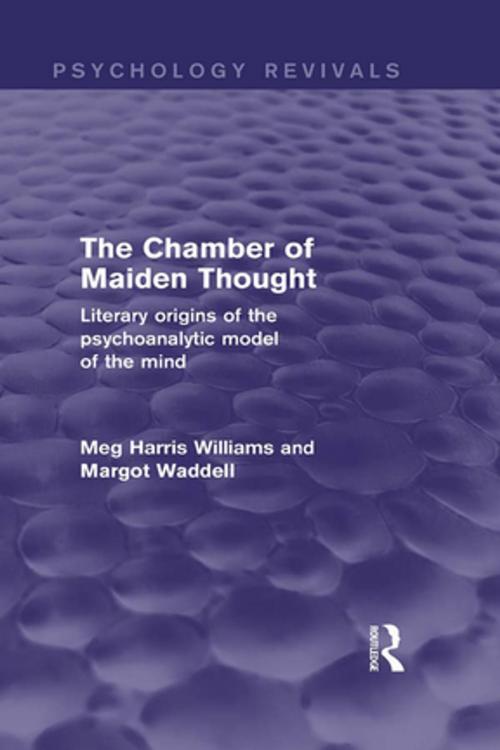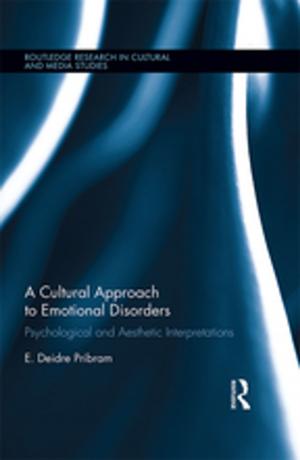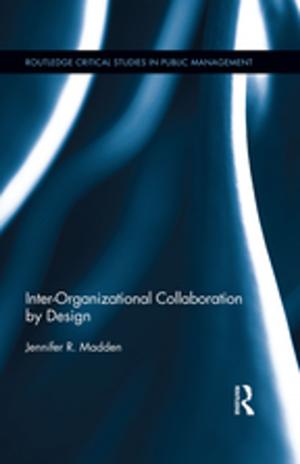The Chamber of Maiden Thought (Psychology Revivals)
Literary Origins of the Psychoanalytic Model of the Mind
Nonfiction, Health & Well Being, Psychology, Psychoanalysis, Fiction & Literature, Literary Theory & Criticism, Poetry History & Criticism| Author: | Meg Harris Williams, Margot Waddell | ISBN: | 9781135039783 |
| Publisher: | Taylor and Francis | Publication: | November 26, 2013 |
| Imprint: | Routledge | Language: | English |
| Author: | Meg Harris Williams, Margot Waddell |
| ISBN: | 9781135039783 |
| Publisher: | Taylor and Francis |
| Publication: | November 26, 2013 |
| Imprint: | Routledge |
| Language: | English |
Literature is recognised as having significantly influenced the development of modern psychoanalytic thought. In recent years psychoanalysis has drawn increasingly on the literary and artistic traditions of western culture and moved away from its original medical–scientific context. Originally published in 1991 The Chamber of Maiden Thought (Keats's metaphor for 'the awakening of the thinking principle') is an original and revealing exploration of the seminal role of literature in forming the modern psychoanalytic model of the mind.
The crux of the 'post-Kleinian' psychoanalytic view of personality development lies in the internal relations between the self and the mind's 'objects'. Meg Harris Williams and Margot Waddell show that these relations have their origins in the drama of identifications which we can see played out metaphorically and figuratively in literature, which presents the self-creative process in aesthetic terms. They argue that psychoanalysis is a true child of literature rather than merely the interpreter or explainer of literature, illustrating this with some examples from clinical experience, but drawing above all on close scrutiny of the dynamic mental processes presented in the work of Shakespeare, Milton, the Romantic poets, Emily Bronte and George Eliot.
The Chamber of Maiden Thought will encourage psychoanalytic workers to respond to the influence of literature in exploring symbolic mental processes. By bringing psychoanalysis into creative conjunction with the arts, it enables practitioners to tap a cultural potential whose insights into the human mind are of immense value.
Literature is recognised as having significantly influenced the development of modern psychoanalytic thought. In recent years psychoanalysis has drawn increasingly on the literary and artistic traditions of western culture and moved away from its original medical–scientific context. Originally published in 1991 The Chamber of Maiden Thought (Keats's metaphor for 'the awakening of the thinking principle') is an original and revealing exploration of the seminal role of literature in forming the modern psychoanalytic model of the mind.
The crux of the 'post-Kleinian' psychoanalytic view of personality development lies in the internal relations between the self and the mind's 'objects'. Meg Harris Williams and Margot Waddell show that these relations have their origins in the drama of identifications which we can see played out metaphorically and figuratively in literature, which presents the self-creative process in aesthetic terms. They argue that psychoanalysis is a true child of literature rather than merely the interpreter or explainer of literature, illustrating this with some examples from clinical experience, but drawing above all on close scrutiny of the dynamic mental processes presented in the work of Shakespeare, Milton, the Romantic poets, Emily Bronte and George Eliot.
The Chamber of Maiden Thought will encourage psychoanalytic workers to respond to the influence of literature in exploring symbolic mental processes. By bringing psychoanalysis into creative conjunction with the arts, it enables practitioners to tap a cultural potential whose insights into the human mind are of immense value.















